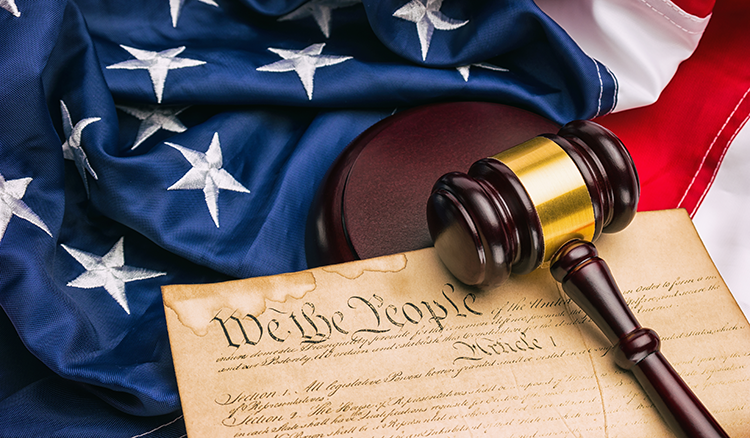Can Trump Pursue a Third Presidential Term? Legal Experts Weigh In
April 3, 2025
The question of whether Donald Trump can serve a third term as president raises complex constitutional issues related to the 22nd Amendment.
Understanding the 22nd Amendment
The 22nd Amendment explicitly states that “No person shall be elected to the office of the president more than twice.” This has led to much debate about whether Trump could navigate around this restriction.
The Interpretation of “Elected”
Legal scholars are exploring a potentially significant loophole in the language of the amendment. According to Michael C. Dorf, a constitutional law professor at Cornell University, the use of “elected” rather than “serve” could result from a drafting oversight. The implication here is that a president may serve a third term under certain conditions, even if not through a conventional election.
Trump’s Remarks and Controversies
Recently, Trump hinted at alternative methods to assume the presidency, stating to NBC News that “there are methods” by which he could serve another term. One possibility discussed involved Vice President JD Vance potentially running for the presidency and then transferring the office to Trump.
Legal Opinions on Vice Presidential Eligibility
However, many constitutional experts refute this idea. They point to the 12th Amendment, which stipulates that “No person constitutionally ineligible to the office of president shall be eligible to that of vice president of the United States.” Trump’s two-term limit under the 22nd Amendment would render him ineligible, thus barring him from serving as vice president as well.
Alternative Scenarios for Presidency
Some scholars propose other scenarios. For instance, if Vance were elected and nominated Trump as Secretary of State, Vance could resign and an alternative line of succession could theoretically allow Trump to ascend to the presidency. This would be contingent on Congress altering federal succession laws that currently prevent cabinet members who are ineligible from holding the presidency.
Legal Perspectives on Possible Loopholes
Akhil Reed Amar, a Yale Law School constitutional professor, acknowledges this loophole, stating, “There is a possible loophole. I wish it weren’t true, but there is.” Despite this, other experts argue that the intent behind the 22nd Amendment was clear: to safeguard against the potential for an individual to establish prolonged, tyrannical control over the nation.
Conclusion
The ongoing discourse surrounding Trump’s potential third term encapsulates deeper constitutional questions about the future of American governance and the safeguards intended by the framers of the Constitution. While interpretations may vary, the risks associated with circumventing established legal frameworks raise significant concerns for many scholars and citizens alike.

